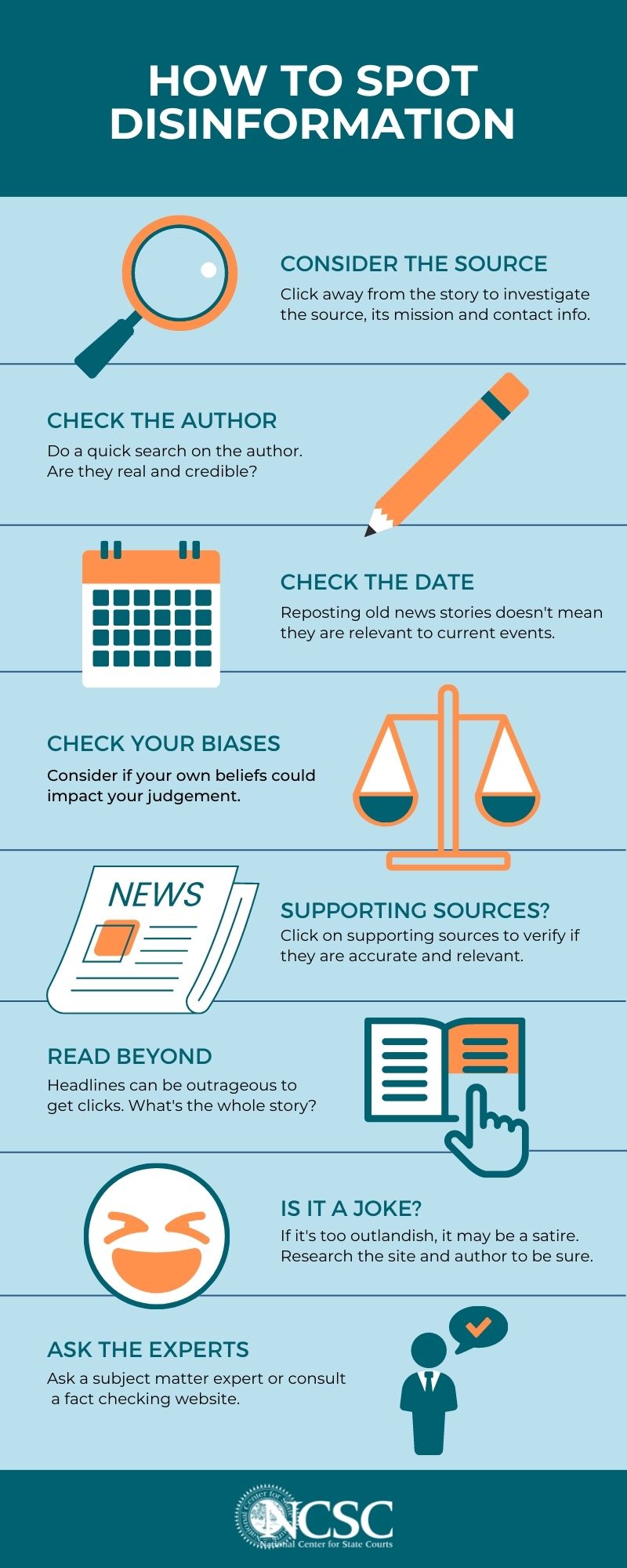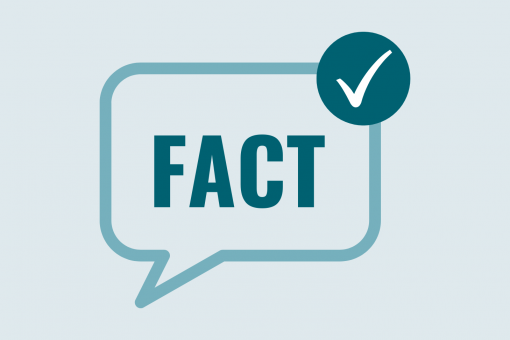 We are all responsible for combating disinformation.
We are all responsible for combating disinformation.
According to the Pew Research Center, one in five Americans receive their daily news intake from social media platforms. In that same survey, 64 percent of adults said “fake news” caused confusion on basic facts, and 23 percent said they had shared “fake news,” either knowingly or unknowingly.
“Fake news” and disinformation campaigns are dangerous in democratic systems as it has the ability to affect public opinion and electoral discourse. As a collective public, we all have the responsibility to stop the spread of disinformation.
Protect yourself from disinformation by:
- Following a diverse group of people and perspectives. Relying upon a small number of like-minded news sources limits the range of material available to you and increases the odds that you may fall victim to hoaxes or false rumors. This method is not entirely foolproof, but it increases your odds of hearing diverse and well-balanced viewpoints.
- Being skeptical about news sources. In the rush to encourage clicks, many online outlets resort to misleading or sensationalized headlines. These outlets emphasize the provocative or the attention-grabbing, even if that news hook is deceptive. You have to keep your guard up and understand that not everything you read is accurate and many digital sites specialize in false news. Learning how to judge news sites and protect yourself from inaccurate information is a high priority in this digital age.
- Fact-checking before you share. When consuming your news online, make sure you know how trustworthy the source is—or whether it’s not trustworthy at all. Double-check stories from other sources with low biases and high fact ratings to find out who, and what, you can actually trust.
- Standing up against false information. If you see that someone has posted a story that is false, say something. When people chime in on a post that is false, it signals that sharing misinformation is frowned upon. By allowing misinformation to spread, you are condoning the false information.

Check with FactCheck.org
FactCheck.org is a project of the Annenberg Public Policy Center of the University of Pennsylvania and a verified signatory of the International Fact-Checking Network at the Poynter Institute. It’s a nonpartisan, nonprofit organization that aims to reduce the level of deception and confusion in U.S. politics. The organization monitors factual accuracy and focuses on dispelling claims that are false or misleading.
Resources and additional information
- “How to Recognize False Content Online — The New 5 W’s Tip Sheet,” Media Smarts
